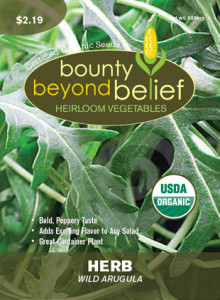What to Unplant
How to Help Your Plants Stay Productive
by Sandy Swegel
I’ve been watching my neighbor Tory’s vegetable garden with great interest this year. She worked as a farm intern (ie. Full-time farming, almost no money) the last couple of years and has brought farm techniques to her home garden. Yesterday as we enjoyed the latest harvest of arugula she announced it was time to dig these up and plant something else. I was surprised since she just seeded these arugula in early March.
From a market farming perspective, you grow greens to harvest a lot of food quickly. She seeded the arugula early and when they are big enough to harvest she cuts them to just an inch or so above the soil level. Then she lets them grow again and the cycle repeats. Plants grown like this produce a lot of food, but they also get tired and worn out. The plant itself is depleted. Tory made her decision to dig under the arugula because the plants weren’t growing as vigorously as before and, the biggest factor, they didn’t taste as good. Whether it was the hard fast growth or a recent week of warm weather, the arugula was getting a little too spicy. It seems harsh, but if you want to keep eating from your garden, you have to unplant the less productive plants and know what to unplant.
Things I’ve unplanted this week:
Arugula that has been harvested three times and is losing vigor.
Kale that had overwintered. It was great to have kale from last year’s plants, but the old woody stems are no longer producing as well as the new plants.
Radishes that got bitter. A week of rain followed by a week of heat made huge bitter radishes. They look great but we crave sweet young vegetables.
Garden more productive and more beautiful.
In the perennial garden, I’ve been unplanting too.
Poppies that have spread everywhere. They are at risk of becoming a weed.
Plants that have grown too big for where they are planted.
Plants that are blocking sprinkler heads.
Plants that I’ve never liked.
Gardeners are often loathe getting rid of plants. They feel sorry for them. They’ve come to know them as friends. But there is a time and season for every plant and a good gardener learns to be a little ruthless. If you want to have succession gardening, you have to create the empty space for the next plant. It may seem harsh, but you have to declutter and make space for new growth!


Leave a Reply
Want to join the discussion?Feel free to contribute!